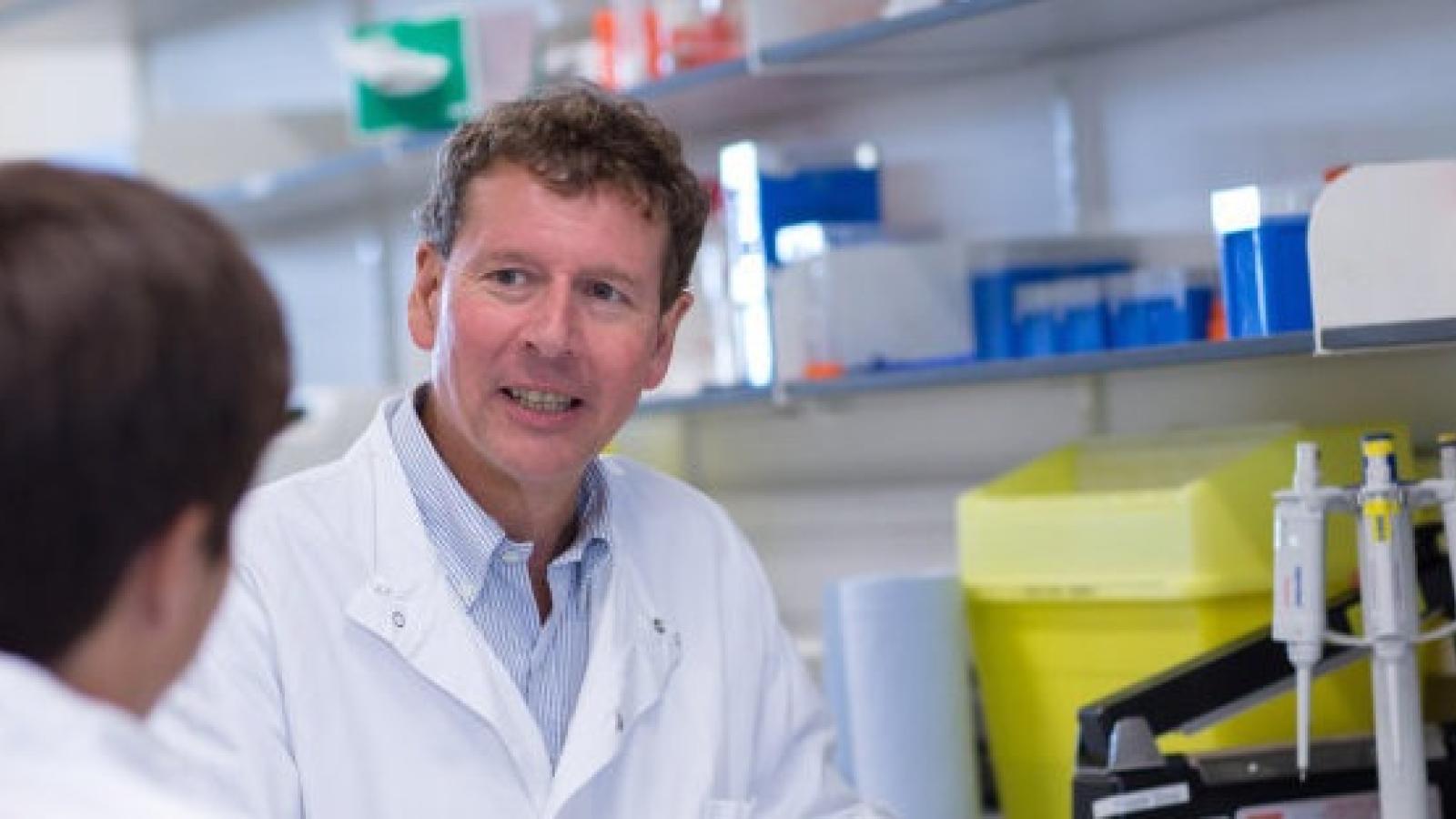The £1.63M gift from Lily Safra and the Edmond J. Safra Foundation will support fellowships for rising stars in Parkinson's Disease research.
The Edmond and Lily Safra Fellowship will offer four exceptional early-career scientists researching Parkinson’s disease and related neurodegenerative disorders the opportunity to join Imperial’s Department of Brain Sciences and to establish themselves as independent researchers. This represents a substantial increase in research capacity and leadership for research in Parkinson’s disease and related areas, enabling significant new research projects to be initiated.
As well as providing a competitive salary to the Edmond and Lily Safra Fellows, the donation will also provide a start-up grant to enable each Fellow to begin laboratory work immediately, to quickly establish a research group and to acquire the preliminary data to make their ideas competitive for external research funding. Fellows will also be able to access funding for specialist equipment and be assigned a mentor, who will support their development as early career academics.
The gift comes at an important moment in the development of Parkinson’s disease research at Imperial. The Department of Brain Sciences at Imperial College London and the Imperial College Healthcare Trust have a long-standing interest in clinical and basic research for Parkinson’s disease. There are immediate opportunities for growth in this area through the creation in 2018 of the UK Dementia Research Institute (UK DRI) Centre, which brings together an interdisciplinary group of researchers investigating the interaction between lifestyle, environment and brain in the development and progression of dementia, and in 2019 the creation of the UK DRI Care Research & Technology Centre, which will develop new technologies to enable people with neurodegenerative conditions to live safely and independently in their own homes. Two Edmond and Lily Safra Fellows will be associated with each UK DRI Centre, an injection of research expertise that will support each centre in realising its potential.
Each Edmond and Lily Safra Fellow will develop their own research programme. Potential research themes with benefits for patients could include non-invasive, targetable deep brain stimulation for tremor suppression, utilising advances in molecular neuroimaging to better understand the early stages of Parkinson’s disease, and the role of neuroinflammation in late life neurodegenerative disease.
Parkinson's disease affects 1% of the population over the age of 65. The key symptoms are tremor, stiffness and slowness of movement. It can also be associated with a number of other "non-motor" symptoms, including depression, sleep disturbance, fatigue and cognitive impairment. Around 145,000 people in the UK have been diagnosed with Parkinson’s and globally an estimated 6.1 million people globally are living with the disease.
<p>people in the UK diagnosed with Parkinson’s disease</p>
Professor Paul Matthews, Edmond and Lily Safra Chair, Head of the Department of Brain Sciences and UK DRI Associate Director, said: “These new fellowships give us a unique opportunity to attract and develop the careers of outstanding younger researchers. Imperial is ideally placed to bring the application of new techniques in molecular, systems and computational neuroscience to bear on the global burden of these major challenges to later life health and wellbeing.”
Professor David Sharp, Professor of Neurology at Imperial and Associate Director for the UK DRI Care Research & Technology Centre, said: “This new fellowship initiative allows us to attract scientists and technologists working at the leading edge to develop the tools that will allow people affected by Parkinson’s disease and dementia to retain independence by staying in their own homes for longer.”
Angela Bowen, Director of Development for the Faculty of Medicine, said: “Mrs Safra and the Edmond J. Safra Foundation are longstanding supporters of medical research at Imperial. This latest gift will help to deliver improved diagnosis, monitoring and treatment for people living with Parkinson’s disease. We are sincerely grateful for their wonderful partnership and philanthropic vision.”
Mrs Lily Safra said: "I am proud to support positions for the most promising young scientists studying Parkinson’s. I know first-hand the suffering that this disease causes to patients and families. The researchers who will be selected under this programme at Imperial College London will without doubt contribute to breakthroughs in our understanding of the human brain, and I wish them great success."
The Edmond J. Safra Foundation was established by the accomplished banker and devoted philanthropist Edmond J. Safra, and since his passing in 1999 it has continued to support good causes under the leadership of his wife, Lily Safra. The Foundation has generously supported a number of prestigious research projects at Imperial including the Edmond J. Safra Professor of Neuropsychopharmacology; the Edmond and Lily Safra Professor of Translational Neuroscience and Therapeutics; and the Edmond and Lily Safra Scholarship programme, which has supported three outstanding early-career investigators to establish themselves in the field of neurodegenerative disease research.
Republished from imperial.ac.uk.
<p>gift from Lily Safra and the Edmond J. Safra Foundation</p>
This new fellowship initiative allows us to attract scientists and technologists working at the leading edge to develop the tools that will allow people affected by Parkinson’s disease and dementia to retain independence by staying in their own homes for longer.Prof David SharpProfessor of Neurology and Associate Director of the UK DRI Care Research & Technology Centre at Imperial
